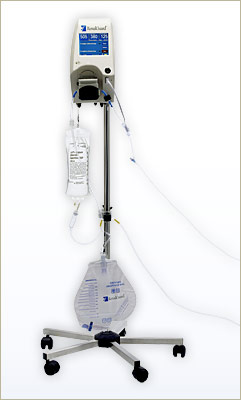 One year ago, PLC Systems enrolled the first patients in its FDA-approved clinical trial designed to evaluate the safety of its RenalGuard System. Yesterday, PLC received conditional approval from the FDA to begin enrollment of a U.S. pivotal trial to study the effectiveness of the System. Things seem to be progressing smoothly for the company, despite falling revenues in its cardiovascular product line ($6 million in 2007 versus $7.15 million in 2006). If the company’s website is any indication, future growth depends on RenalGuard.
One year ago, PLC Systems enrolled the first patients in its FDA-approved clinical trial designed to evaluate the safety of its RenalGuard System. Yesterday, PLC received conditional approval from the FDA to begin enrollment of a U.S. pivotal trial to study the effectiveness of the System. Things seem to be progressing smoothly for the company, despite falling revenues in its cardiovascular product line ($6 million in 2007 versus $7.15 million in 2006). If the company’s website is any indication, future growth depends on RenalGuard.
RenalGuard is an investigational therapy targeting patients with diminished renal function who may be at risk for Contrast-Induced Nephropathy, most commonly defined as acute renal failure occurring within 48 hours of exposure to radiographic contrast media.
The real-time fluid replacement device is intended for interventional cardiology and radiology patients undergoing imaging procedures using contrast media. Based on existing data, PLC believes initiating and maintaining high urine output will allow the body to rapidly eliminate contrast media, reducing its toxic effects.
Approximately seven million patients worldwide undergo interventional therapeutic and diagnostic procedures each year. CIN is a growing concern due to the increasing number of older patients, diabetics and patients with pre-existing renal failure. They are at increased risk for CIN when they require interventional procedures that use radiographic contrast media. CIN is the third-most common cause of in-hospital acute renal failure.
The trial will include a minimum of 246 patients and is expected to last through 2009.
Mark R. Tauscher, President and CEO of PLC, commented, “We are focused now on incorporating FDA’s input into our final study protocol, and rapidly moving through the next phase of our clinical trial plan, which includes securing approvals to begin our study from hospital Institutional Review Boards at the sites that have elected to participate.”
To date, PLC has focused on a surgical procedure known as transmyocardial revascularization, a medical treatment option for patients who suffer from severe coronary artery disease.